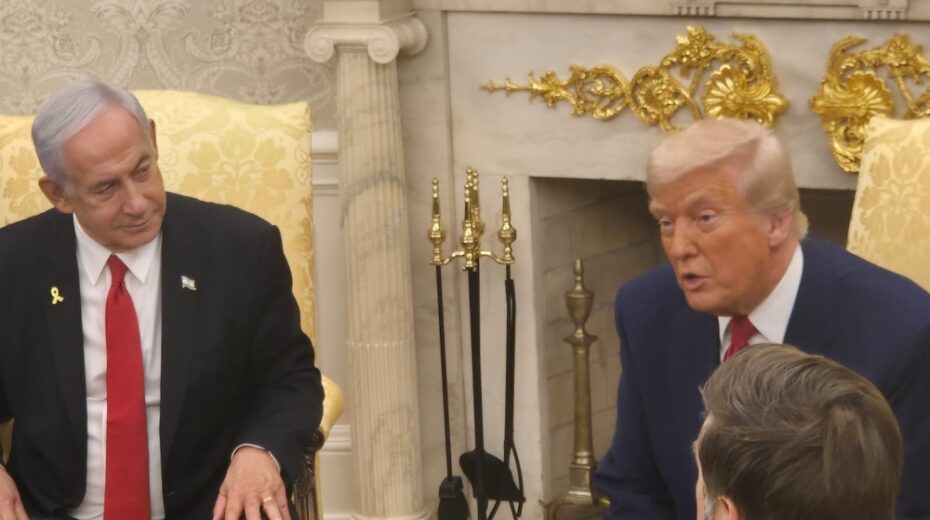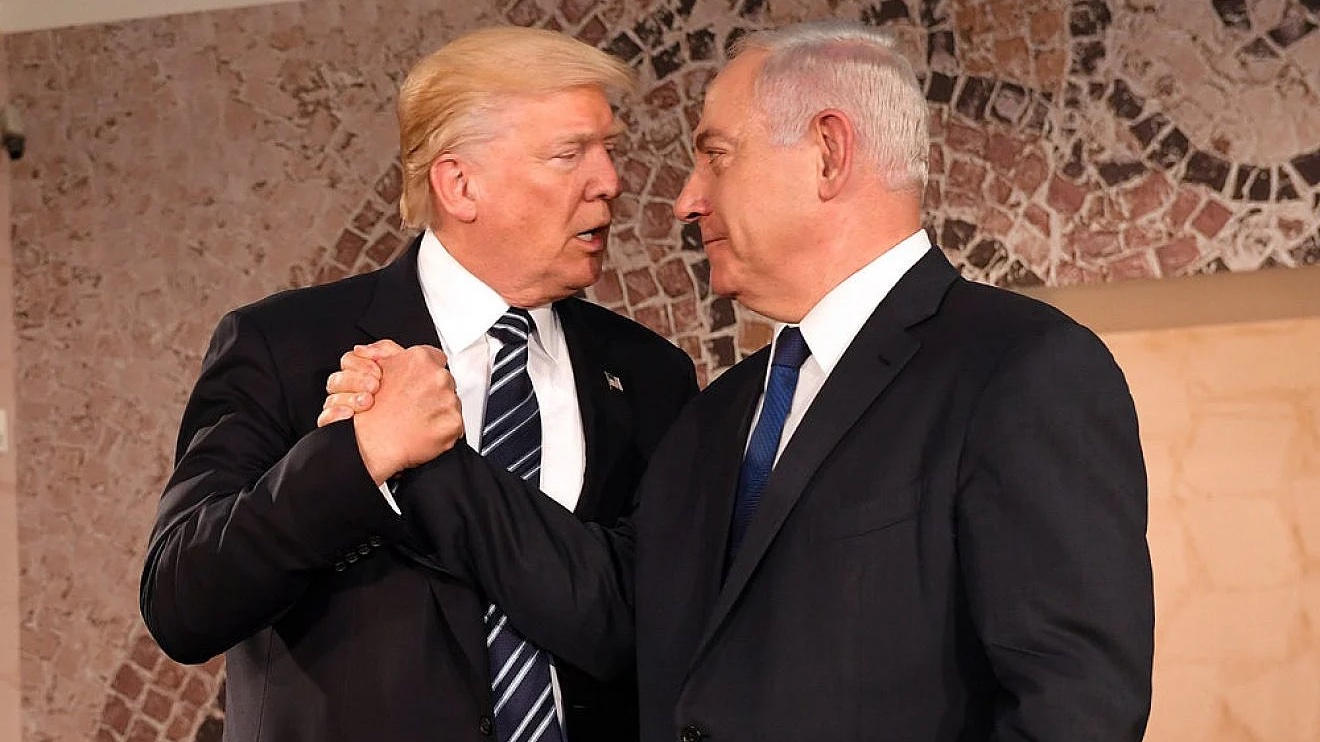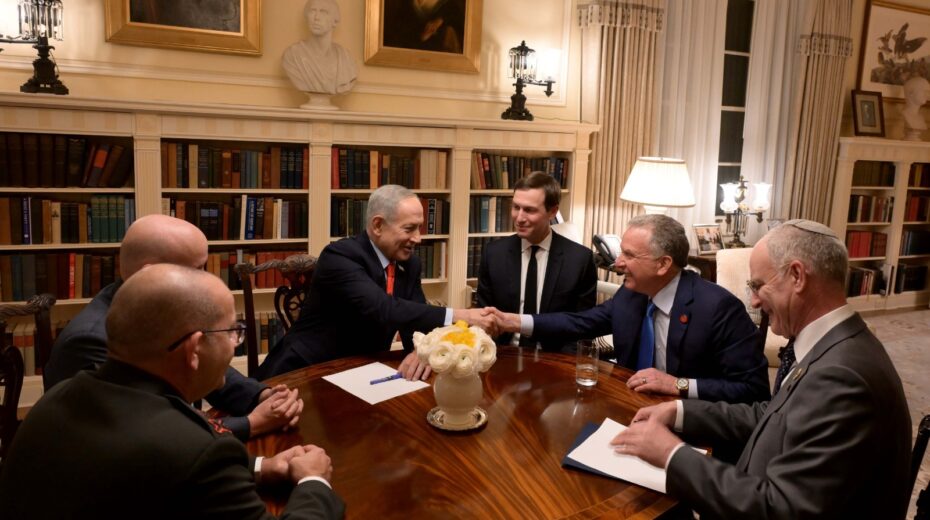Prime Minister Benjamin Netanyahu’s unscheduled visit to the White House on Monday wasn’t to negotiate trade tariffs, at least not primarily. The real reason US President Donald Trump summoned the Israeli leader was to discuss a new effort to curb the Iran threat.
During their joint press conference, Trump revealed that his administration was opening direct negotiations with Iran, beginning on Saturday in Oman.
Trump wanted to update Netanyahu privately that he was pursuing this approach with the ayatollahs, but that it did not mean a lessening of American support for Israel. It was likewise important for Trump to inform Netanyahu both so that Israel wouldn’t be caught off guard and to ensure Israel wouldn’t sabotage these talks or even preemptively strike Iran militarily.
One last diplomatic effort?
The opening of direct diplomatic talks with Iran was certainly not something Netanyahu was pleased to hear. Until now, the Iranians had refused to negotiate with the US citing a lack of trust in Trump. But it seems the president’s recent threats succeeded in convincing them to come to the table.
If the announcement of US-Iran talks was disconcerting to Netanyahu, the second part of Trump’s remarks on the matter were reassuring: If the talks fail, “it will be a very bad day for Iran,” warned the president.
Both Trump and Netanyahu were adamant: Iran will not attain a nuclear weapon. One way or another, either through negotiations or other less pleasant action, the two leaders remain determined to prevent that particular global threat. And Trump openly acknowledged that the upcoming talks could fail, and that if that were the case he has a lot of other options at his disposal.
This kind of carrot-and-stick approach, with a believable threat of military action, was lacking during the Biden administration, and is undoubtedly music to Israeli ears.
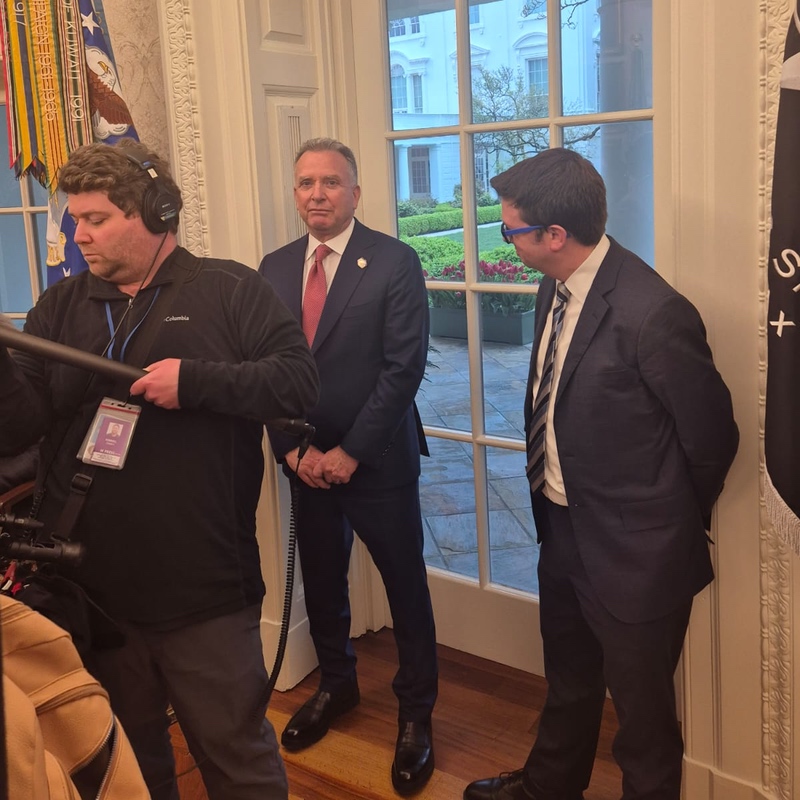
No tariff deal, yet
Even so, Netanyahu did not receive the gift he had hoped for: A statement from Trump that he would reduce the new 17 percent tariffs on Israeli goods and services. Not only did Trump not announce a tariff reduction, he pointed out that the US provides Israel with $4 billion in aid–more than any other country in the world–and added humorously, “And, by the way, congratulations on that!” At the same time, Trump thanked Netanyahu for taking rapid steps to lower Israeli tariffs on US goods and services, stressing that other countries should take note of Israel’s response to his administration’s policies.
Gaza
Regarding the hostage issue, there were no major updates from Trump beyond mentioning the horrific cruelty of Hamas toward the hostages. He didn’t say anything concrete about a new deal, but expressed great empathy for the hostages who had been released and looked like they came out of concentration camps. Trump did say he is confident the war in Gaza will end soon.
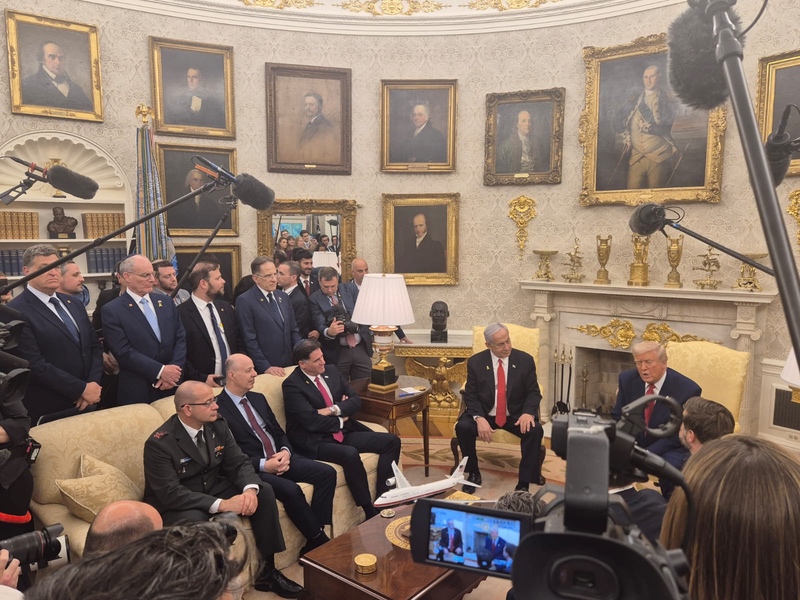
The meeting did succeed in dragging the proposal to relocate Gaza’s population back into the spotlight. Netanyahu convinced Trump that there are countries willing to accept Gazans, following a series of discussions conducted by the Mossad. In response, Trump made an interesting remark over how he couldn’t understand why Israel had chosen to give up such an amazing piece of seaside real estate in the first place. He noted that Israel had been promised peace in return for leaving Gaza in 2005, but that his had clearly been a bad deal. The remark was notable given that most of the world insists Israel was “illegally occupying” Gaza, while Trump suggested that it was Israel’s to either keep or give away.
Turkey
Trump acknowledged Israel’s new challenges in Syria, and in particular concerns that Israeli forces could come into direct contact with Turkish forces now taking up positions in the country. The US president emphasized that he has good personal relations with Turkish strongman Recep Tayyip Erdogan, and promised to help resolve any problems between Israel and Turkey.
Want more news from Israel?
Click Here to sign up for our FREE daily email updates


